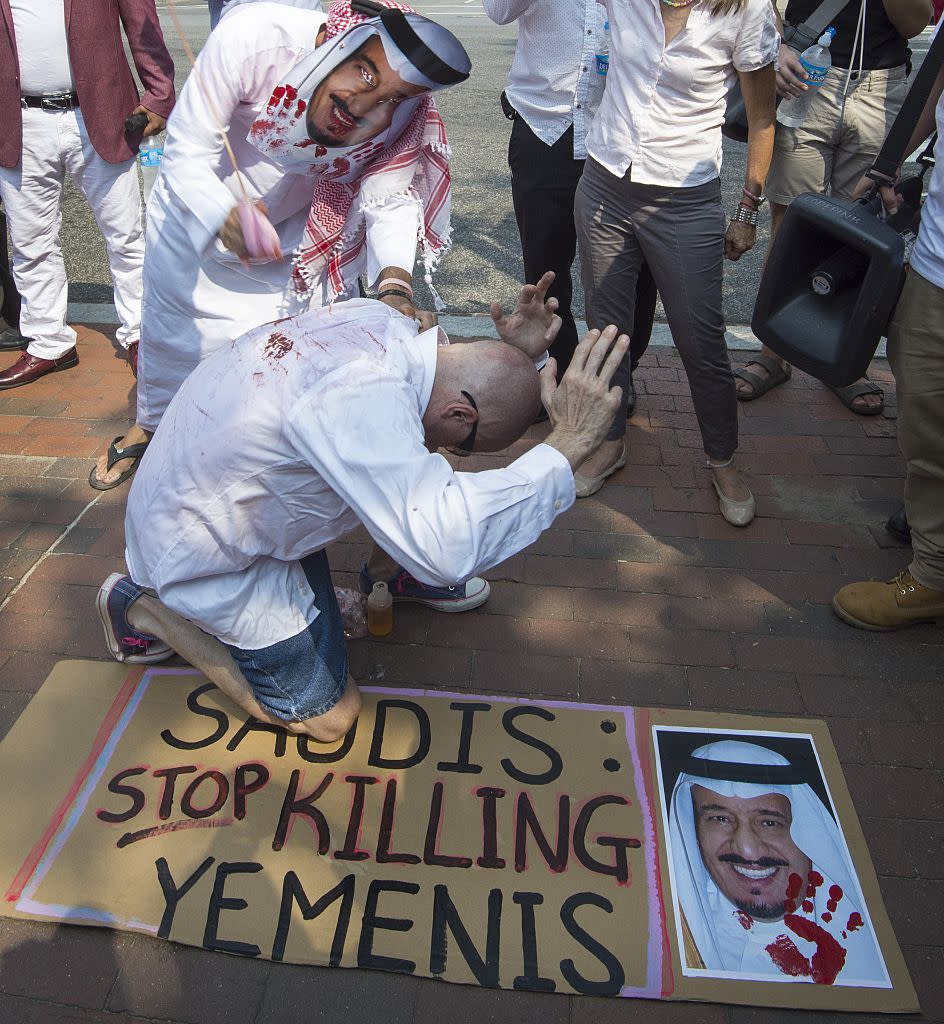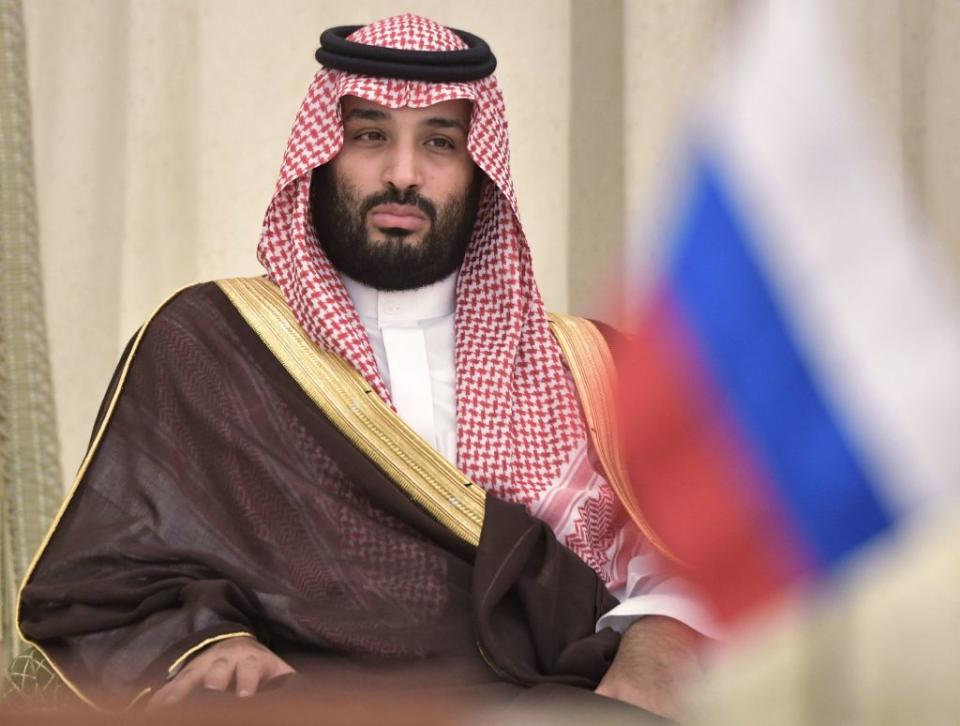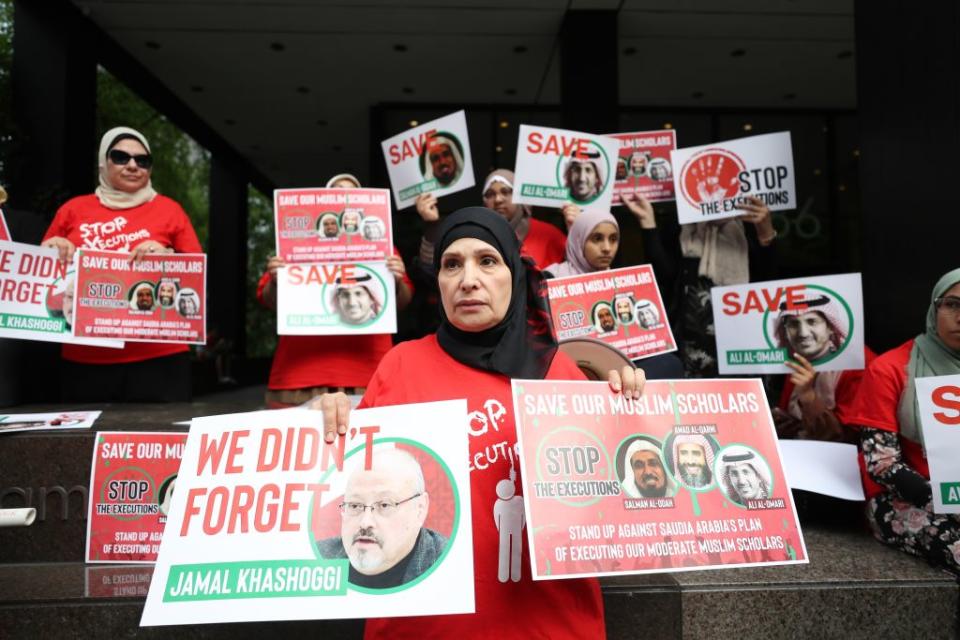Saudi Arabia ends death penalty for one group
Saudi Arabia’s King Salman has ordered an end to the death penalty for crimes committed by minors, according to a top official.
The decision comes on the heels of another ordering judges to end the practice of flogging, replacing it with jail time, fines or community service and bringing one of the kingdom’s most controversial forms of public punishment to a close.
King Salman’s son and heir, Crown Prince Mohammed bin Salman, is seen as the force behind the kingdom’s loosening of restrictions and its pivot away from ultraconservative interpretations of Islamic law known as Wahhabism, which many in the country still closely adhere to.

The Crown Prince has sought to modernise the country, attract foreign investment and revamp Saudi Arabia’s reputation globally.
He’s also overseen a parallel crackdown on liberals, women’s rights activists, writers, moderate clerics and reformers. The 2018 killing of Saudi writer Jamal Khashoggi in Turkey by agents who worked for the Crown Prince drew sharp criticism internationally.
The latest royal decree by King Salman could spare the death penalty for at least six men from the country’s minority Shiite community who allegedly committed crimes while under the age of 18, including Ali al-Nimr, who had participated in anti-government protests.
Such activity carries terrorism-related charges in the kingdom for disturbing order and disobeying the ruler.
In a document seen by The Associated Press, the royal decree orders prosecutors to review cases and drop punishments for those who’ve already served the maximum 10 years.

However, the decree states that terrorism-related cases of minors will be tried differently. It was not immediately clear whether these cases would be bound by the 10-year prison limit.
Last year, Saudi Arabia executed a young man convicted of crimes that took place when he was 16 years old.
Amnesty International said Abdulkareem al-Hawaj was found guilty of offences related to his participation in protests in Shiite-populated areas of Saudi Arabia.
Washington Post publisher blasts 'sham trial' in Khashoggi murder after top officials get off
Trump touts low oil prices, as well as high oil prices, crediting his 'friend' the Saudi prince
Amnesty International and Human Rights Watch have long called on the kingdom to abolish the use of the death penalty, particularly for crimes committed by minors.
The president of the Saudi government’s Human Rights Commission, Awwad Alawwad, confirmed the latest decision in a statement on Sunday, saying it helps the kingdom establish “a more modern penal code and demonstrates the kingdom’s commitment to following through on key reforms”.
He said “more reforms will be coming” and that the two decisions “reflect how Saudi Arabia is forging ahead in its realisation of critical human rights reforms even amid the hardship imposed by the COVID-19 pandemic”.
The decree expands on a previous order by King Salman issued in late 2018, which set a maximum 10-year prison term for minors in certain cases, except for crimes punishable by death.

Now the 10-year maximum applies to all crimes by minors, with the possible exception of terrorism-related crimes.
“This step, if true, needs to nullify current death sentences of all children,” Ali al-Ahmed, a Saudi rights activist in Washington, said.
Saudi Arabia’s Supreme Court recently issued a directive to end flogging as a form of punishment sometime in April, according to another document seen by The Associated Press.
Do you have a story tip? Email: newsroomau@yahoonews.com.
You can also follow us on Facebook, Instagram and Twitter and download the Yahoo News app from the App Store or Google Play.



